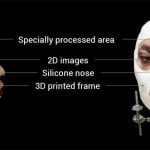

Exposure to childhood violence is linked to psychiatric disorders, according to a research. The results of the study conducted by researchers at Columbia University’s Mailman School of Public Health and Federal University of Sao Paulo showed that having experienced any traumatic event and low socioeconomic status were associated with an internalizing disorder such as depression and anxiety and an externalizing disorder including attention-deficit hyperactivity.
The study was conducted in two different neighbourhoods in the city of Sao Paulo, Brazil, one urban and one more rural. One-hundred and eighty 12-year-olds from public schools and their caregivers were interviewed to determine the influence of previous violent events and of socioeconomic status on the prevalence of psychiatric disorders.
Using structured interviews, the research team led by Silvia Martins, MD, PhD, Mailman School associate professor of Epidemiology, evaluated psychiatric disorders including: internalizing disorders (depression, anxiety and post-traumatic stress disorder) and externalizing disorders (attention-deficit hyperactivity disorder, conduct disorder and oppositional-defiant disorder).
Nearly one-quarter (22%) of youths had a psychiatric disorder. Depression and attention-deficit hyperactivity disorder were the most common diagnoses, at 9.5%, and 9%, respectively, followed by anxiety disorder at 6%. A total of 14% of the sample had an internalizing disorder, nearly half of whom were males (45%). Another 15.5% had an externalizing disorder. Almost 60% of adolescents with any diagnosis had experienced at least one violent event during their lifetime. The results are published in the Brazilian Journal of Psychiatry.
[“source=hindustantimes”]




